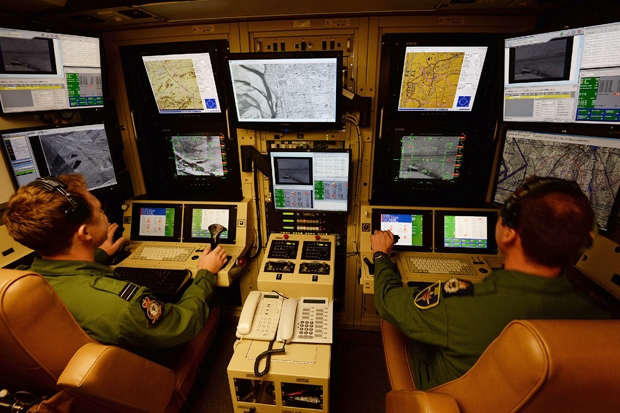Not even Jeremy Corbyn lamented the death of Reyaad Khan, who was killed by an RAF drone in Syria after joining the Islamic State. He was a straight-A student from Cardiff who had the freedom to do anything with his life, but chose to turn his back on Britain and join a band of Islamofascists. He had been working hand-in-glove with Junaid Hussain, a talented computer hacker from Birmingham who fled to Syria; the two of them had been making detailed plans for attacks on Britain.
But the RAF’s involvement in the strike marks a new chapter in British warfare. The motive for the action was simple: Khan was planning to inflict great harm on British people, and in the absence of alternatives, the RAF struck when they had the chance. David Cameron didn’t need to say much more than that in the House of Commons this week. Yet he seemed bafflingly determined to climb into the same legal traps that ensnared Tony Blair. Khan was ‘directing’ an attack, he said, so the strike qualifies as ‘self-defence’ — language aimed at complying with Article 51 of the UN Charter. Immediately, he waded into the fog of law. There is no intelligence to suggest that Khan was planning a specific attack, and the Prime Minister should have taken care not to suggest otherwise.
The UN Charter was written 70 years ago, when the idea of an ‘imminent’ attack carried a very different meaning. In the era of digital jihad, attacks can always be ‘imminent’, because it takes no time at all to organise one. The language of the UN Charter no longer fits the reality of modern warfare. As the Prime Minister says, the killing of Reyaad Khan is a ‘departure’ for Britain — but the rules of engagement in this new world need to be explained. The Americans have been debating the legality of drone attacks for years; in Britain, the debate is just starting.
That Khan was struck by the RAF in Syria is freighted with political significance. Both Britain and the United States are at war with the Islamic State and have been bombing its positions for months, but the RAF bombers stay on the Iraqi side of the border because David Cameron lost a vote over acting in Syria two years ago. It was a humiliation for him, and a deserved one. He was proposing to attack the other side, Bashar al-Assad. At the time, he was asked how he could be so sure that weapons intended for the ‘good’ Syrian rebels would not end up in the hands of the jihadis. He had no convincing answers.
George Osborne now describes the Syria vote as ‘one of the worst decisions the House of Commons has ever made’ — skipping over the small point that he was, then, unwittingly proposing to put the RAF at the service of the Islamic State by attacking its enemy, Assad. It might once have been possible to prevent the Islamist takeover of Syria — but not in August 2013; the ‘moderate’ rebels were already too weak. There was no question of boots on the ground and, as the British military told the Prime Minister, bombing campaigns don’t build free and safe societies. The kind of intervention that was planned — firing a few petulant missiles at Assad’s positions — would have failed.
Drones, however, are devastatingly effective. Barack Obama’s expansive use of unmanned aircraft has drummed al-Qaeda out of the Pakistani tribal areas and is now squeezing them out of Yemen. The combination of highly advanced intelligence (monitoring the mobile phones and even emails of targets) and the ability to send a drone with laser-guided missiles minimises collateral damage. Drones worked in Afghanistan, too, where allied forces had a ‘kill list’ in the form of the Joint Prioritised Effects List. The same method is being used against Isis to good effect. Just last month the deputy leader of Isis, Fadhil Ahmad al-Hayali, was killed by a US drone in Iraq.
Mr Cameron is right to think it ridiculous that the RAF does not chase jihadis over a Syrian border that is effectively being erased by the war. But he got himself into this mess by making such a fuss about the need for parliamentary approval in the first place. None is needed; under the royal prerogative the Prime Minister can do what he feels is necessary.
As Lord Salisbury once remarked, a gram of experience is worth a ton of theory. Before his election, Cameron might have argued that lawyers must approve every step taken in the name of national security and the Parliament needs to vote on any new development. In office, he has found himself fighting a 21st-century war using a charter written in 1945. He can, if he chooses, keep stretching the definition of terms such as ‘directing’ and ‘imminent’ until they snap. Or he can simply say that Britain is at war with the Islamic State, and that people like Reyaad Khan are going to be casualties of that war. It is not a controversial argument: polls suggest that Khan’s assassination is backed by seven to one.
Iraq destroyed Blair’s reputation because, in the end, he could not bring himself to level with the British public. Cameron should not make the same mistake.







Comments